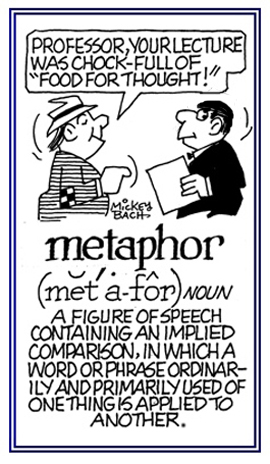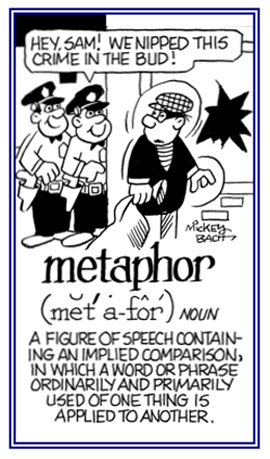phoro-, phor-, -phora, -phorous, -phoresis, -phore, -phori, -phoria +
(Greek > Latin: bearer, to bear, carrying; producing, transmission; directing, turning; originally to carry or to bear children)
hydrophorography
A description of the pressure and the flow of fluids; such as, the pressure of the spinal fluid or the flow of urine.
hypophoria
A tendency of the visual axis of one eye to deviate downward, prevented by binocular vision.
iodophor
A substance consisting of iodine and a surface-active agent in solution that slowly releases elemental iodine which is used as a disinfectant.
katophoria
A tendency to downward deviation of the eyes.
lipophore
A pigment cell containing a lipochrome pigment.
1. A material that sends out light by absorbing and then converting a portion of incident energy: The students observed that the ocean was glowing and concluded that there was a lot of luminophore in the water which absorbed radiation and produced a glowing effect.
2. An atom or atomic grouping in an organic compound that increases its ability to produce light: The marine biologists were studying how to increase the luminophore in certain oceanic organisms and thereby increase the ability of such organisms to phosphoresce.
2. An atom or atomic grouping in an organic compound that increases its ability to produce light: The marine biologists were studying how to increase the luminophore in certain oceanic organisms and thereby increase the ability of such organisms to phosphoresce.
mastigophoric
1. Referring to someone carrying or wielding a whip.
2. In biology, with reference to a cell having a flagellum (a long thin tapering outgrowth of the cells of many microorganisms; such as, protozoans used as a means of locomotion).
2. In biology, with reference to a cell having a flagellum (a long thin tapering outgrowth of the cells of many microorganisms; such as, protozoans used as a means of locomotion).
1. A figure of speech in which a word or phrase that ordinarily designates one thing is used to refer to something else; therefore, making an implicit comparison in order to show or to suggest that they are similar: In other words, a metaphor is a statement that says one thing but is another way of emphasizing a likeness or quality, so "Sharon is an angel" and "Hank is a lion in battle" are considered to be metaphors.
2. One thing which is conceived as representing another thing; a symbol: "Gordon was drowning in paperwork" is a metaphor in which having to deal with a lot of reports, writing letters, etc. is being compared to drowning in an ocean.
3. Etymology: from Greek meta, "beyond" + pherein, "to carry" .

© ALL rights are reserved.

© ALL rights are reserved.
Go to this Word A Day Revisited Index
2. One thing which is conceived as representing another thing; a symbol: "Gordon was drowning in paperwork" is a metaphor in which having to deal with a lot of reports, writing letters, etc. is being compared to drowning in an ocean.
3. Etymology: from Greek meta, "beyond" + pherein, "to carry" .


Go to this Word A Day Revisited Index
so you can see more of Mickey Bach's cartoons.
metaphoric
An expression that describes a person or object in a literary way by referring to something that is considered to possess similar characteristics to the person or object which someone is trying to describe.
metaphorical
Not having real existence but symbolic and showing some truth about a situation or other subject.
metaphorically
By leaving school without any qualifications, she has, metaphorically speaking, shot herself in the foot; that is, harmed her chances for success.
necrophore
Any of numerous species of beetles of the genus Necrophorus and allied genera; also called, burying beetle, carrion beetle, or sexton beetle.
necrophoresis
The transport of dead individuals away from a colony, as with some social insects.
Necrophorus
A genus of burying beetles.
The swimming bell of a siphonophore: The hydrozoans are transparent marine organisms that can swim or float using the nectophores.
Cross references of word families related to "bear, carry, bring": duc-; -fer; ger-; later-, -lation; port-.


